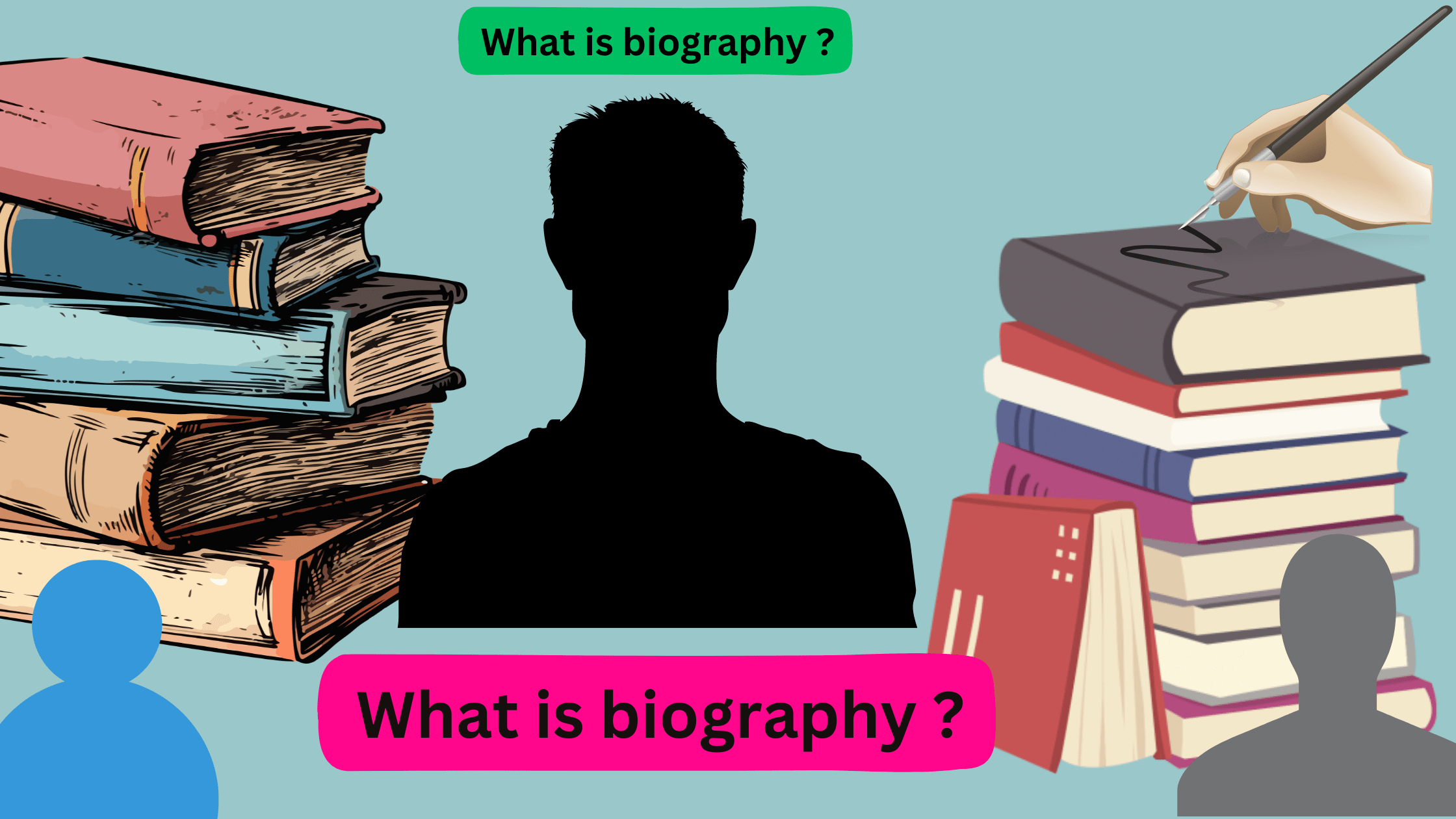How to Choose the Perfect Subject for Your Biography
Writing a biography is no small feat. It requires careful consideration of the subject, as it will shape the entire story. But how do you choose the perfect subject for your biography? In this article, we will delve into some key factors to consider when selecting the ideal person to write about.
One crucial aspect to think about is the level of public interest and fascination surrounding the individual. Look for someone who has left a lasting impact on society, whether through their achievements, contributions, or unique experiences. Moreover, consider the subject’s relatability and the universal themes their life embodies. After all, a biography should resonate with a wide audience.
Additionally, it’s vital to choose someone you are genuinely passionate about. Writing a biography demands extensive research and dedication, so it’s essential to feel enthusiastic about your subject. This passion will shine through in your writing, capturing readers’ interest and ensuring an engaging narrative.
By carefully considering public interest, relatability, and your personal passion, you can choose the perfect subject for your biography. Join us as we dive deeper into this exciting journey of storytelling. Remember, the subject will be the heart and soul of your biography.
The importance of choosing the right subject for your biography
Choosing the right subject for a biography is a crucial decision that can make or break the success of your writing project. The subject you select will not only shape the narrative and direction of your story but also determine the level of reader engagement and interest. A well-chosen subject can captivate your audience and create a lasting impact, while a poor choice can result in a lackluster and forgettable biography.
When selecting a subject for your biography, it’s essential to consider the individual’s significance and the potential impact their story can have on readers. The subject should be someone who has made a notable contribution to society, whether through their achievements, innovations, or unique experiences. By choosing a subject with a compelling and impactful life story, you can ensure that your biography resonates with a wide audience and leaves a lasting impression.
Furthermore, the subject’s relatability and the universal themes their life embodies are equally important factors to consider. A biography that explores themes such as overcoming adversity, pursuing dreams, or making a difference in the world can strike a chord with readers and inspire them. By selecting a subject whose story reflects the human experience, you can create a biography that is not only informative but also emotionally engaging and meaningful.
Factors to consider when selecting a subject for your biography
When it comes to selecting a subject for your biography, there are several key factors to consider. One of the most important aspects is the level of public interest and fascination surrounding the individual. Look for someone who has captured the attention of the public, whether through their accomplishments, controversies, or unique perspectives. A subject with a high level of public interest can ensure that your biography attracts a wider readership and generates more buzz.
Another crucial factor to consider is the availability of information and sources on your potential subject. Biographers rely heavily on primary sources, such as personal documents, interviews, and historical records, to piece together a comprehensive and accurate account of an individual’s life. Ensure that there are sufficient resources available to conduct thorough research and gather the necessary information to craft a compelling and well-researched biography.
Additionally, it’s essential to choose a subject that you are genuinely passionate about. Writing a biography is a long and arduous process that requires extensive research, dedication, and emotional investment. If you don’t feel a personal connection to your subject, it can be challenging to maintain the motivation and enthusiasm needed to see the project through to completion. By selecting a subject that you are genuinely interested in and excited to learn more about, you can infuse your writing with a genuine passion that will captivate your readers.
Researching potential biography subjects
When it comes to researching potential biography subjects, the key is to cast a wide net and explore a diverse range of individuals. Start by brainstorming a list of people who have caught your attention or piqued your curiosity. These could be historical figures, contemporary leaders, or even lesser-known individuals who have made significant contributions in their respective fields.
Once you have a list of potential subjects, begin researching each one to gain a deeper understanding of their lives and the impact they have had. Utilize a variety of sources, including biographies, autobiographies, academic journals, news articles, and online databases, to gather as much information as possible. Pay attention to the level of public interest and the availability of resources, as these will be crucial factors in determining the viability of your subject.
As you delve into your research, look for patterns, themes, and unique aspects that set your potential subjects apart. Consider the universal human experiences and emotions that their stories might explore, as well as the broader societal or historical context in which they lived. By identifying these key elements, you can begin to assess the suitability and marketability of each subject for your biography project.
Evaluating the suitability of a subject for your biography
When evaluating the suitability of a subject for your biography, there are several important factors to consider. One of the primary considerations is the level of public interest and fascination surrounding the individual. A subject with a high profile and a compelling story is more likely to capture the attention of readers and generate widespread interest in your biography.
Another crucial factor to assess is the uniqueness and significance of the subject’s life and achievements. Look for individuals who have made a lasting impact on their field, society, or the world at large. By choosing a subject whose story is both compelling and impactful, you can ensure that your biography will be both informative and engaging for your readers.
In addition to public interest and significance, it’s important to consider the subject’s relatability and the universal themes their life embodies. Biographies that explore themes such as overcoming adversity, pursuing dreams, or making a difference in the world can resonate with a wide range of readers. By selecting a subject whose story reflects the human experience, you can create a biography that is not only informative but also emotionally resonant and inspiring.
Assessing the availability of information and sources on your chosen subject
When it comes to writing a biography, the availability of information and sources on your chosen subject is crucial. As a biographer, you will rely heavily on primary sources, such as personal documents, interviews, and historical records, to piece together a comprehensive and accurate account of an individual’s life.
Before committing to a subject, it’s essential to thoroughly assess the accessibility and quality of the available information. Start by conducting a comprehensive search across various platforms, including academic databases, online archives, and local libraries. Evaluate the breadth and depth of the existing literature, and consider whether there are any gaps or areas that require further exploration.
Additionally, it’s important to assess the reliability and credibility of your sources. Look for authoritative and well-respected sources, such as academic publications, reputable news outlets, and firsthand accounts from the subject or their close associates. Avoid relying on unverified or questionable sources, as they can undermine the accuracy and credibility of your biography.
By carefully evaluating the availability and quality of information on your chosen subject, you can ensure that you have the necessary resources to craft a well-researched and engaging biography. This assessment will also help you identify any potential challenges or limitations that you may need to address during the writing process.
Balancing personal interest with market demand when choosing a subject for your biography
When choosing a subject for your biography, it’s important to strike a balance between your personal interest and the market demand for the story. On one hand, selecting a subject that you are genuinely passionate about can infuse your writing with a level of enthusiasm and authenticity that can captivate your readers. On the other hand, considering the market demand for a particular subject can help ensure that your biography resonates with a wider audience and has the potential for commercial success.
As you evaluate potential subjects, take the time to reflect on your own interests, passions, and areas of expertise. What individuals or stories have captured your imagination and inspired you? What themes or experiences resonate most with you, and how might they translate to a compelling biography? By tapping into your personal interests, you can bring a unique perspective and depth of understanding to your writing that can set your biography apart.
At the same time, it’s important to consider the broader market landscape and assess the potential demand for your subject’s story. Research current trends in the biography genre, and look for subjects that have generated significant public interest and commercial success. Consider factors such as the individual’s level of recognition, the timeliness of their story, and the universal themes that their life might explore.
By balancing your personal passion with an understanding of market demand, you can increase the likelihood of your biography resonating with a wide audience and achieving commercial success.
Narrowing down your options and making a final decision
As you explore potential subjects for your biography, it’s important to carefully narrow down your options and make a final decision that aligns with your goals, resources, and personal interests.
This process can be both exciting and challenging, as you weigh the various factors that contribute to the suitability and viability of each subject.
Begin by creating a shortlist of your top contenders, considering factors such as public interest, significance, relatability, and the availability of information and sources. Evaluate each subject’s strengths and weaknesses, and identify any potential challenges or limitations that you may need to address during the writing process.
Once you have a refined list of potential subjects, it’s time to delve deeper into your research and make a final decision. Conduct additional interviews, review primary sources, and explore the broader historical and cultural context surrounding each individual. This in-depth exploration will help you gain a more comprehensive understanding of your subjects and their stories, allowing you to make an informed and confident choice.
Ultimately, the subject you select for your biography should be one that you are genuinely excited and passionate about. This enthusiasm will be reflected in your writing, and it will be the driving force that propels you through the challenges and obstacles that may arise during the research and writing process. By choosing the perfect subject, you can create a biography that not only captivates your readers but also leaves a lasting impact on their lives.
Tips for conducting interviews with your chosen subject
Conducting interviews with your chosen subject is a crucial aspect of the biography-writing process, as it allows you to gain firsthand insights and a deeper understanding of their life and experiences. To ensure that your interviews are productive and insightful, it’s essential to approach them with a well-thought-out plan and a set of effective strategies.
Begin by thoroughly researching your subject’s life and background, so that you can develop informed and thoughtful questions that delve into the key moments, relationships, and decisions that have shaped their journey. This preparation will not only demonstrate your dedication and commitment to the project but also help you uncover unique and compelling narratives that might not be readily available in existing sources.
During the interviews, strive to create a comfortable and open environment that encourages your subject to share their stories and perspectives freely. Listen actively, ask follow-up questions, and be prepared to navigate sensitive or difficult topics with empathy and discretion. By building a rapport with your subject and making them feel heard and understood, you can unlock a wealth of personal insights and anecdotes that can add depth and authenticity to your biography.
Additionally, be mindful of the logistics and practical considerations of conducting interviews. Ensure that you have the necessary equipment, such as high-quality recording devices and note-taking materials, to capture the conversation accurately. Respect your subject’s time and schedule, and be flexible in accommodating their preferences and availability.
By approaching your interviews with a strategic mindset, a genuine curiosity, and a commitment to capturing your subject’s unique voice and perspective, you can gather the invaluable primary sources that will form the foundation of your engaging and impactful biography.
Writing and structuring your biography effectively
Once you have carefully selected your subject and conducted thorough research, the next step is to craft an engaging and well-structured biography. Effective biographies are not merely a chronological recounting of events but rather a carefully curated narrative that captures the essence of the subject’s life and experiences.
Begin by establishing a clear and compelling narrative arc that guides the reader through the key moments, milestones, and turning points in your subject’s life. Consider the overarching themes and universal human experiences that their story explores, and use these as the foundation for your writing.
Weave together personal anecdotes, historical context, and insightful analysis to create a cohesive and captivating story that resonates with your audience.
In addition to the narrative structure, pay close attention to the pacing and flow of your biography. Striking a balance between detailed descriptions, reflective passages, and engaging dialogue can help to maintain the reader’s interest and keep them invested in the unfolding story.
Experiment with different writing styles, such as using first-person perspectives or shifting between past and present tenses, to add depth and nuance to your subject’s voice and experiences.
Furthermore, consider the overall organization and structure of your biography. Divide your narrative into logical sections or chapters that highlight the significant phases, events, or themes in your subject’s life. This strategic approach not only helps to create a clear and coherent flow but also allows you to delve deeper into specific aspects of your subject’s story, providing readers with a comprehensive and insightful understanding of their life.
By carefully crafting a well-structured and engaging biography, you can captivate your readers, inspire them, and leave a lasting impression that extends beyond the pages of your book.
The impact of choosing the perfect subject for your biography
Choosing the perfect subject for your biography is a critical decision that can have a profound impact on the success and impact of your writing project. By selecting an individual who has made a significant contribution to society, whose story resonates with a wide audience, and whose life is rich in compelling narratives and universal themes, you can create a biography that not only informs and educates but also inspires and captivates your readers.
The subject of your biography will be the heart and soul of your work, shaping the narrative, the themes, and the overall direction of your storytelling. By carefully considering factors such as public interest, relatability, and the availability of information and sources, you can ensure that you choose a subject that will capture the attention of your audience and leave a lasting impression.
Moreover, the passion and enthusiasm you bring to your subject will be reflected in the quality and depth of your writing. By selecting a topic that you are genuinely excited about, you can infuse your biography with a level of authenticity and emotional resonance that will resonate with readers and leave a lasting impact.
In the end, the subject you choose for your biography will not only determine the success of your writing project but also the legacy you leave behind. By taking the time to carefully consider all the factors and select the perfect subject, you can create a work of art that not only informs and educates but also inspires and transforms the lives of your readers.


